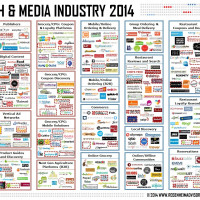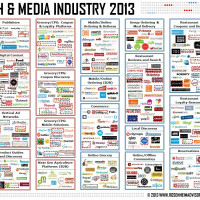 Today, Relay Foods, an online grocery marketplace for local foods, announced it has acquired Arganica Farm Club and raised $1.2 million to expand into the greater Washington, Baltimore and Philadelphia areas. The Charlottesville, Virginia-based company raised this round of financing from existing investors of both companies. Terms of the acquisition were not disclosed. The company previously raised $3.1 million from investors including Battery Ventures.
Today, Relay Foods, an online grocery marketplace for local foods, announced it has acquired Arganica Farm Club and raised $1.2 million to expand into the greater Washington, Baltimore and Philadelphia areas. The Charlottesville, Virginia-based company raised this round of financing from existing investors of both companies. Terms of the acquisition were not disclosed. The company previously raised $3.1 million from investors including Battery Ventures.
Relay is a hybrid between an online grocery and a farmers market, offering everything from CPG items like diapers and Jello to local, organic vegetables, meats and breads. Through its website, customers can place orders until midnight for a next day pickup at one of their 60 drop-off locations in Charlottesville and Richmond, Virginia.
With the new round of funding, the company will be improving the shopping experience by refreshing their website and developing a more intelligent product recommendation and personalization engine. Their acquisition will also enable them to capitalize on Arganica’s existing customer base, and perhaps more importantly vendors in Washington, DC, Baltimore and Philadelphia. They will also be launching fulfillment centers in each of those locations in the coming months.
Relay’s Innovative Approach to Tackling “The Last Mile”
Relay is trying to tackle the challenge of shortening “the last mile” – getting products from fulfillment center to customers – which is notoriously difficult and expensive for online grocery delivery outside of dense metropolitan areas. Webvan, one of the largest dot-com busts of all time, tried and failed for a variety of reasons, including their overly aggressive expansion plan and their costly distribution centers, pre-purchased inventory and lack of delivery density.
“Put simply, Webvan failed because they burned through a massive amount of capital putting complex systems in place before enough income was coming in to offset that investment,” say Relay founder Zach Buckner. “Because I’m an engineer, I saw this as an engineering problem and went about setting up systems that could provide solutions.”
Relay’s major innovations have been in establishing convenient pickup locations for their customers and charging a small fee for those that prefer delivery- $10 per order or $25 per month for unlimited. The distance between homes in suburban areas significantly adds to the costs of a delivery business model, which is why Relay has focused on the pickup approach. Perishables also require temperature controlled packaging or that customers be home to accept delivery, both of which add to the cost and inconvenience of online ordering.
It’s telling that last year Peapod, the largest online grocer owned by Royal Ahold, began experimenting with curbside pickup at their Helmsford Stop & Shop store and just last week launched the program at their Abington store, for these very reasons.
Scaling Local
Relay has been able to avoid costly investment in pre-purchased inventory by working with vendors that agree to fill orders on a daily basis. “From a costs perspective, this was critical, as we carried almost no inventory risk and were able to scale up slowly,” comments Buckner. “From a customer’s perspective, this meant supporting familiar local farmers, local artisans, and local shopkeepers, plus getting the freshest possible food (often picked or baked fresh the same day). Really, this has been a win-win.”
Peapod and New York-based Fresh Direct are often cited as the most successful companies in the online grocery, selling more than a combined $500 million annually. Sourcing local, perishable products for them, however, is still a major challenge because of issues with labeling, code compliance and supply. And this is exactly where Relay’s model, which has already enabled them to source thousands of items from over 100 local producers and deliver them to customers the next day, is something worth keeping an eye on.
“Our technology gives us the capability to engage the customer and make their food buying experience much more transparent than it would be in a traditional grocery store by telling vendors’ stories and providing the kind of details consumers want to know about their food,” says Buckner. “Our IT systems allow us to seamlessly make next-day delivery of the freshest possible foods a reality at low cost.”
Still, Relay has higher overhead costs – fulfillment centers, delivery trucks, fuel— than others creating software to facilitate online farm-to-fork marketplaces, like Farmigo and Good Eggs. Only time will tell how their models compare as each these companies scale.
The video below features a demo of the website by co-founder Arnie Katz at the Food+Tech Meetup this past July.
July Food+Tech Meetup with Relay Foods from Food Tech Connect on Vimeo.







